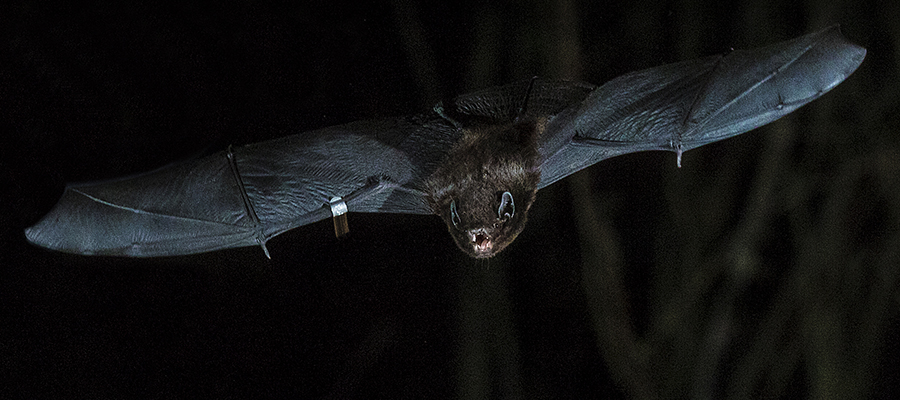
Slippery slope for bat predators
Could aluminium bands wrapped around old trees be one way of preventing one of NZ’s native bat species from extinction?
A new predator-proofing trial in South Canterbury seeks to find out.
Staff from Environment Canterbury and the Department of Conservation put aluminium bands around three known long-tailed bat roosting trees on Timaru District Council land near the Pleasant Point Golf Course.
The bands provide a smooth surface and are expected to prevent predators such as cats, rats, stoats, and possums from digging their claws into the tree trunks and climbing up to the bat roosts.
Environment Canterbury biodiversity officer Rob Carson-Iles said this form of predator control had not been used to protect a bat population in South Canterbury before, but the idea has been used by DOC to protect the orange-fronted parakeet in Arthur's Pass National Park and two other areas in Canterbury.
"Every little bit [of predator control] counts. These are areas that aren't the most practical for doing large-scale predator control in because they are close to town. So if we can stop them predators from getting up roost trees, it's a no-brainer really," he said.
The long-tailed bat used to be common throughout New Zealand in the 1800s but by 1900-1930 they were becoming scarce in many districts. Recent surveys indicate that South Island long-tailed bats are rarer than previously thought and the bat is now classified as "Nationally Critical" meaning they are most severely threatened and face a high risk of extinction.
They used to roost on large native trees but have adapted to roost on introduced species such as willows, poplars, macrocarpa, and pines.
"If you're a landowner and you have trees, particularly willows, by the time they're actually good for roosting in is when they grow really big and fall down. The point where they're really big and ugly is also the point they're really good for the bats.
"If we can educate people to be aware of the bat roosting trees that's really important," Rob said.
